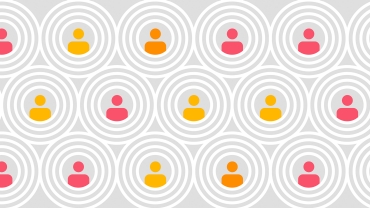
Free fall | as easy as ABC
It is almost comical for him to say that the main thing that stopped him from jumping is that there were kids swimming in the pool and he did not want to startle them in a major way and be the cause of their trauma. But laughing matter it is not, and as sensitive as it can get, it is.
I hesitated much about writing on this topic, but I found encouragement to do so from a boy who was foiled from his attempt to jump, and he finally wrote about it, at the great risk of being ridiculed. He felt compelled to come out recently in social media after a female student leaped to her death on campus, in his desire to help prevent it from happening again.
My wife, discussing the topic with our son studying in the same school, assured him that when he is all grown up, earning, and living his own life, his school grades would not even matter at all. But that is a mother who’s not under stress (so it seems) lecturing a son who’s not undergoing depression (I think).
As an accountant, I can understand reports that depression, leading to taking one’s life, is the second highest cause of death in the 19-35 age group. My lawyer logic tells me that age group consists largely of millennials, and the issue exists among students, but even more so among those who are already working. And whether working professionals know it or not, people with these issues are among our friends and colleagues, and the workplace or people in it can be part of the reason why they suffer their miseries.
I have nothing else to offer on an area outside my field of expertise. So last Friday, I did the next best thing, which is to have a long lunch with an expert in the field. This short article will not do justice to everything the doctor said, but I wish to share with my readers what I learned from what I was looking for: What are the telltale signs of depression? What is the best way to help them?
Dr. Antonio “Tofi” Sison, a leading psychiatrist in the country (among his diversified fields of medical expertise), explained the issue to me using four ballpens placed alongside each other. He said the second pen is the normal, and the third pen is the stressed level, the fourth is the clinically depressed (which he classified as suffering from a sickness that is totally curable). The first pen on the right is better than normal, the high-performance level. He said you want people in the workplace going more to Pen 1 (high performance) than going to Pen 3 (stressed level). It is quite normal to be stressed, as stress is not a sickness, but too much of it can cause the sickness in Pen 4, called depression.
So how do you know when a person is merely stressed, and how do you know that a person is already depressed? Dr. Tofi explains that the most telling sign is loss of work function: absenteeism – when he is usually always present and available; not meeting deadlines – when he would normally be very responsible; and being unproductive – in contrast to his performance before. The other key sign is social dysfunction, as when the person becomes unusually withdrawn and irritable.
If a person is sad and still functions well, he is not depressed. If a person has a depressed mood most of the day and becomes uninterested in his normal activities and relationships, he is depressed.
How about the reverse, or those persons who have a surge of energy, and don’t feel the need to slow down, with lots of ideas in mind? Dr. Tofi said this is suggestive of hypomania (pervasive and elevated, but not irritable mood). Still, the key is if this person is able to function at that level, there is no depression. (Dr. Tofi is aware though of high-functioning individuals who mask or hide their depression.)
How do you prevent people from sliding from Pen 3 to Pen 4, and even make them go up to Pen 1? Dr. Tofi said employers should invest in mental wellness of the workforce, and not merely mental health. For example, in our firm, we provide free massage to our staff during the peak season. The training room converts to a spa area beginning at 5 p.m. This pampering during stressful times is a mental wellness activity, he agrees. And all the fun activities in the workplace help improve mental wellness – but won’t help those who are in Pen 4.
How do we help those in Pen 4? You see, despite our well-meant intentions, sometimes our best efforts can’t help. The normal words of encouragement that can work for those in Pen 3 will be naive if used to help those already in Pen 4. Medical intervention is required. And I hope the key signs of loss of work and social function can be detected not only by the people around, but early on, especially by the person experiencing the episode so that he can immediately get himself medically evaluated. A lawyer-friend puts the issue of the human brain in a simple manner: “A computer attacked by a virus needs an IT person to fix it, as its anti-virus program is not always enough.”
There is nothing abnormal or shameful about it. It is a sickness and it has cures, and one may need a doctor.
As for the role of schools and families, Dr. Tofi and I are one in that it is simply too difficult to suggest what they should do. Unlike in the workplace where the boss has the authority to make things happen, the school has thousands of students not under its control, and the family may have limited time to observe their children who, in their eyes and on the surface, are simply doing the same things every day.
Well, there is one thing though, which is to work hard on communication. “Bottom to top,” according to Dr. Tofi. If communication comes from the top, that won’t help. It should come from the persons we want to talk to. We should find a way to make them speak – if they are happy, why; and are they, really. If they say they are okay and they don’t elaborate, let’s keep trying anyway to elicit that grassroots conversation. “Bahala ka na” (it’s up to you) has no room in a family; there is only patience, the persistence to connect, and add to that, more patience.
Free fall is a tragedy no mortal and no family deserves. From the souls of the fallen, maybe there is one reminder for all of us. Family is free. Listening is free. Communication is free. I said it; now, let me try.
Alexander B. Cabrera is the chairman and senior partner of Isla Lipana & Co./PwC Philippines. He also chairs the Educated Marginalized Entrepreneurs Resource Generation (EMERGE) program of the Management Association of the Philippines (MAP). Email your comments and questions to aseasyasABC@ph.pwc.com. This content is for general information purposes only, and should not be used as a substitute for consultation with professional advisors.
Contact us







